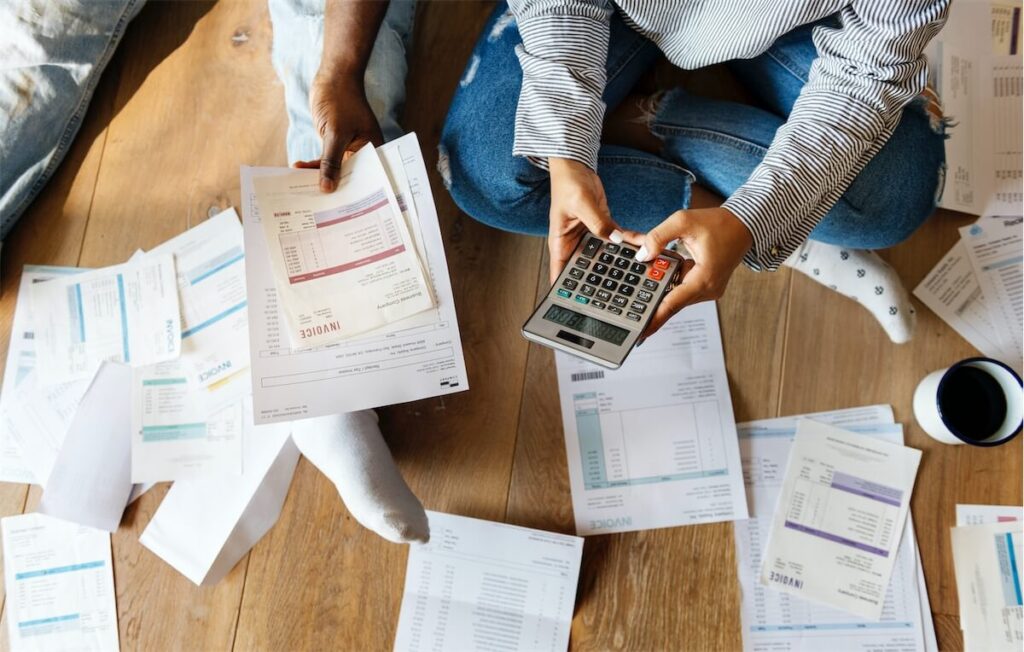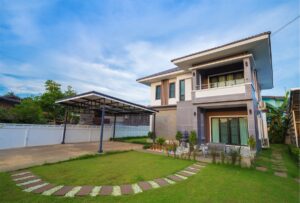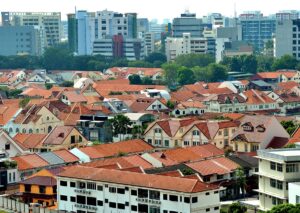Looking to upgrade from HDB to a condo? It’s a very exciting proposition! But it’s not all glitter and gold. When the time comes for you to ask yourself, “can I afford an EC?”, make sure you’re taking all possible expenses into account.
As you work your way through your purchasing decision, appreciation and affordability are likely 2 of the key factors you’re thinking of.
Executive condos have had a better track record of appreciation than resale flats for over a decade now. But high appreciation won’t exactly matter if you can’t afford the short and long-term expenses of an EC.
Depending on many factors, a resale flat may be more suitable for you than an EC, or perhaps the other way round. We’ve crunched all the numbers and thought of all possible considerations to help guide your decision.
Can you afford an EC?: 5 key considerations
When assessing the major differences in expense for an EC vs a resale flat, we can group them into 5 main categories.
- Overall price difference
- Grants available to you
- Initial cash outlay and monthly HDB loan or bank loan repayment
- Renovation costs and long-term maintenance fees
- Difference in property taxes
These key categories will help you get a clearer picture of what to consider when making your own calculations for your plans to upgrade from HDB to condo.
Read about the 4 financial mistakes to avoid when upgrading from an HDB to a condo.
Can you afford an EC?: The overall price differences

On a baseline, ECs tend to have a heftier price tag attached to them than resale flats.
Island-wide averages suggest that ECs cost around S$937 per square foot (psf), while resale 5-room flats in 2021 cost about $465 psf. 5-room flats average in size at about 1,184 square feet (sq. ft.), which is very close to the most common-sized EC units for families today (between 1,050 to 1,200 sq.ft.).
Assuming you want to get a new 5-room home, here’s how the difference in price between ECs and resale flats will stack up, going by averages.
| Property Type | Executive Condo | Resale Flat |
| Area of 1,184 sq. ft. | $937psf x 1,184 | $465psf x 1,184 |
| Overall price | $1,109,408 | $550,560 |
The average psf cost of an EC ($937 psf) is 67% more than that of a resale flat ($465 psf). While the number might not seem to be very large, the difference can be pretty substantial when looking at a full-sized home.
In this case (as calculated above), an EC would cost you approximately $558,844 more than a resale flat of the same size.
This is considerably normal. Keep in mind that, on average, an EC will cost you twice the price of a resale flat of the same size.
Can you afford an EC?: What are the grants available?
When you pick an EC over a resale flat, you’re definitely going to miss the grants. There’s a substantial difference in the maximum value in grants you can get for an EC vs resale flat.
When you’re buying a resale flat, the maximum value you can get in the form of grants is S$160,000.
With that said, it’s unlikely for most Singaporeans to be able to get that total amount. The amount that you’ll get varies circumstantially.
For a resale flat, you’re looking at the following:
| Family Grant | Up to S$50,000 (or S$40,000 for flats that are 5-room or larger)Family grants are for first-time applicants who are married or engaged |
| Enhanced CPF Housing Grant (EHG) | Up to S$80,000EHG helps families better afford resale flats. The grant amount varies based on family income. |
| Proximity Housing Grant (PHG) | Up to S$30,000PHG encourages people to live within a 4km distance of their families. |
But things aren’t quite the same with buying an EC, where you’ll only be able to get a family grant that goes up to S$30,000.
With that said, if your income level allows you the luxury of even considering the purchase of an EC, it’s highly unlikely that you’ll be eligible for the full $160,000 in resale grants.
That’s because of the circumstances of eligibility for those grants, such as income ceilings.
For example, you can only get the full S$80,000 in grants with the EHG if your family’s average income is less than S$1,500 a month.
How much upfront cash will you need? And what sort of loan will help finance the purchase of my new home?
For starters, you can’t take an HDB loan to buy an EC, and you’ll have to opt for a bank loan instead for your home loan in Singapore.
The amount you need to pay upfront will vary based on the type of property you’re buying.
If you’re buying a resale EC, you’ll need to make a minimum downpayment of 25% of the property. Moreover, the first 5% of your property’s payment must be made in cash.
If you’re buying an EC that’s still under construction, you’ll need to make a payment of 5% in cash to make a booking of the property. After which, you’ll need to make a payment of an additional 15%, 9 weeks later.
Learn more about purchasing a private building under construction (BUC) here.
If you’re looking at buying a resale flat instead of an EC, you’ll only need to pay a minimum 10% downpayment of the flat’s price or its valuation, whichever is lower. The amount is payable via cash or CPF.
Where loans are concerned, taking an HDB loan for a resale flat would mean you’ve got an interest rate of 2.6% a year.
With an EC, you will likely need a bank loan, which currently has lower interest rates than an HDB home loan in Singapore.
With that said, it’s worth noting that bank loans can be volatile and are ever-changing.
If you need help figuring it out, consider working with a mortgage broker in Singapore.
READ: Ultimate compilation guide: A look at the different types of mortgage rates in Singapore
Can you afford an EC?: The difference in renovation costs and maintenance fees

When you move into your new home, you may or may not need to spend money on extensive renovations.
But if you’re moving into a home that’s like an empty canvas, it might be worth noting that ECs might already come with basic fixtures and even high-end finishing, depending on the developer of the EC.
With that said, renovation costs are highly subjective and situational. Maintenance fees, however, are a little more of a long-term fixture.
For HDB resale homes, the highest conservancy fees for 5-room flats come at about S$90 a month.
Charges for ECs vary, depending on the services and amenities made available during the EC. ECs with a more extensive range of facilities may even charge between S$300 to S$400.
Can you afford an EC?: Differences in property taxes
You’ll have to pay property taxes on your home based on your house’s Annual Value (AV).
Your home’s AV is an estimation by IRAS, based on the rental income that you could earn from renting your home out, even if you don’t.
ECs tend to have significantly higher AVs than resale homes and are likely to fetch higher amounts if rented.
You’ll need to factor this long-term expense into your calculations when you’re deciding whether you can afford an EC.
You can also use this IRAS calculator to check the amount you might need to pay in taxes.
Read more about property tax in Singapore here.
Here are 7 things to know about the recent HDB resale spike in Singapore.
So, can you afford an EC?
The benefits and lifestyle that an EC can offer you are unparalleled.
With amenities that help balance Singapore’s fast-paced life, there’s no guessing why so many people want to own an EC.
Not to mention, ECs like the new Yishun Avenue 9 EC give homeowners luxuriant living that’s still nestled within the comforts of heartlands.
But it’s important to make sure that you come to a decision that’s well-informed and leaves you in a good place for the rest of your life. What’s the point of having your dream EC home if you’re going to have to cut corners just to pay off your home loan?
With that said, there’s a flurry of financial information that you need to work through, and we understand your apprehension. Perhaps a mortgage broker in Singapore might be just what you need.
Here at FinanceGuru, we’re dedicated to making sure that your next financial purchase is the best decision for you.
We’ll help you find the best financial situations with a detailed understanding of your situation. After all, you could read a tonne of articles about buying your new home, but none of them could possibly account for your exact, unique situation.








